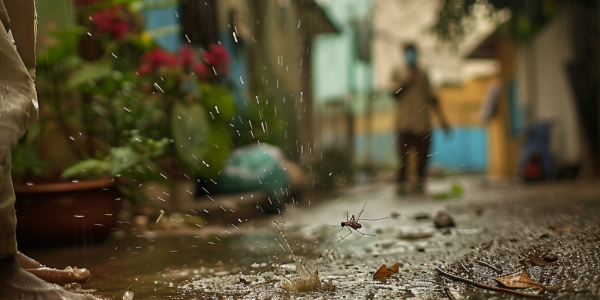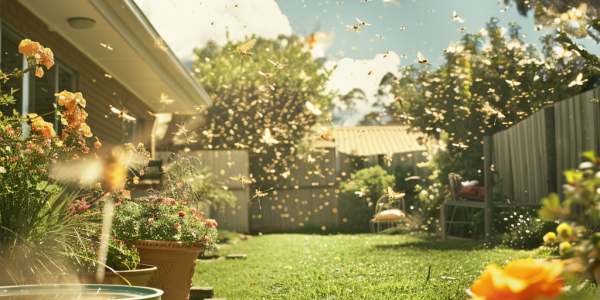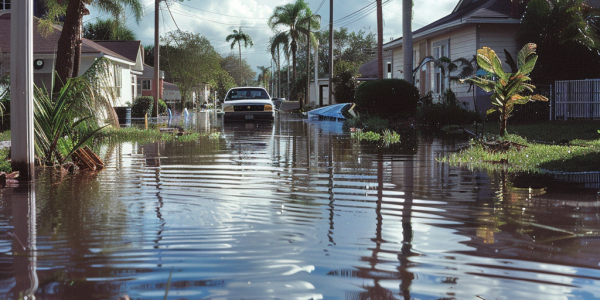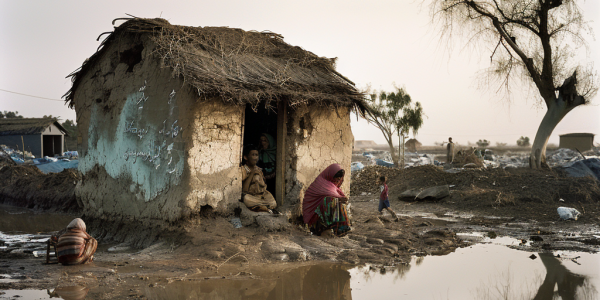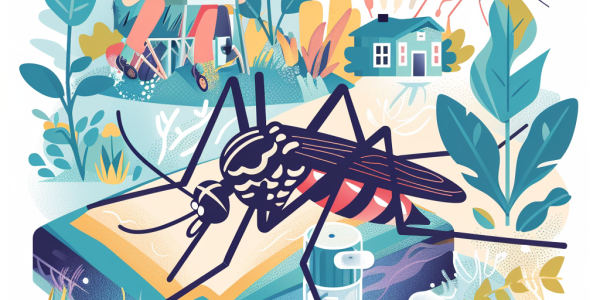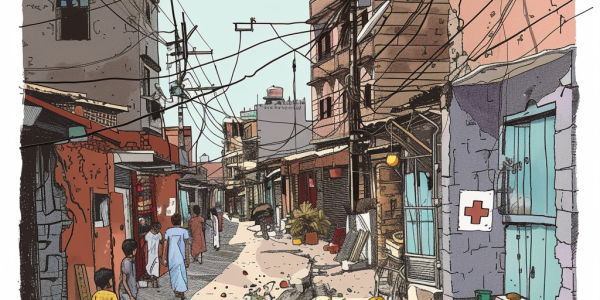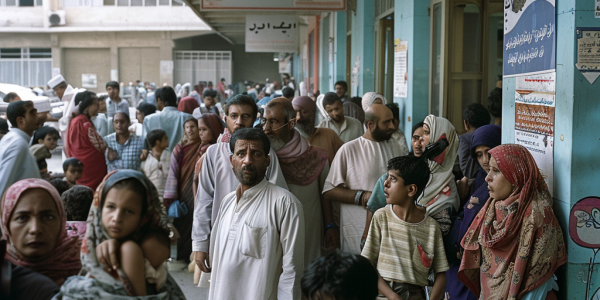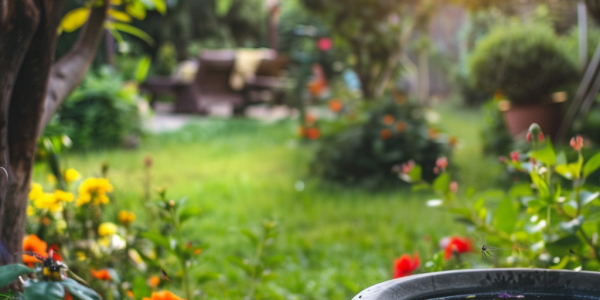Dengue Cases Surge in Tamil Nadu Amid Heavy Rainfall
Heavy rainfall in Tamil Nadu has led to a significant rise in dengue fever cases, with over 23,000 reported in 2024. Health officials urge the public to take preventive measures against mosquito breeding and seek medical attention promptly to combat the outbreak.
Australia Faces Surge in Mosquito Populations Amid Health Concerns
As Australia faces a surge in mosquito populations, particularly in Sydney, health authorities are urging community involvement to combat the risk of mosquito-borne diseases like Ross River virus. Engaging in citizen science initiatives, residents can help monitor mosquito activity and contribute to public health efforts. Stay informed and proactive this mosquito season to protect your health and community.
Dengue Fever Cases Surge in Hillsborough County Post-Hurricane Milton
In the wake of Hurricane Milton, Hillsborough County is facing a surge in locally acquired dengue fever cases, with four confirmed infections reported. Health officials are implementing mosquito control measures, including aerial spraying, to curb the spread of this viral disease transmitted by Aedes mosquitoes. Residents are urged to take precautions against mosquito bites and eliminate standing water around their homes. As the community rallies to combat this health threat, awareness and proactive measures are essential in safeguarding public health.
Pakistan’s Sindh Province Faces Ongoing Health Crisis After Devastating Floods
In the wake of the devastating 2022 floods, Pakistan’s Sindh province faces a severe public health crisis with a surge in waterborne diseases like malaria and cholera. Families, especially in rural areas like Sujawal, struggle with limited access to clean water and healthcare. Health officials warn of a potential emergency as the situation worsens, highlighting the urgent need for improved sanitation and healthcare resources to protect vulnerable communities.
Dengue Fever: Understanding, Managing, and Preventing the Global Health Threat
Dengue fever is a global health concern, with over 100 million cases reported annually. This mosquito-borne viral infection, transmitted by Aedes mosquitoes, can lead to severe symptoms like high fever, severe headaches, and body aches. Understanding how to manage and prevent dengue is vital for recovery. Key strategies include staying hydrated, monitoring temperature, using fever-reducing medications, and eliminating mosquito breeding grounds. Learn more about recognizing symptoms and effective prevention methods.
Dengue Cases Surge Past 4,000 in Delhi Amid Rising Vector-Borne Diseases
The Municipal Corporation of Delhi (MCD) reports over 4,000 dengue cases in 2024, with a significant spike in October. The rise in vector-borne diseases, including malaria and chikungunya, prompts officials to urge residents to eliminate mosquito breeding sites. With three fatalities reported this year, public health measures are critical as temperatures drop. Stay informed and proactive to protect against these health threats in Delhi.
Egypt Declares Malaria Eradicated After Millennia of Struggle
Egypt has officially eradicated malaria, a disease that has plagued the nation for millennia. This achievement highlights the effectiveness of public health initiatives, including the distribution of insecticide-treated bed nets and community education. The elimination of malaria is expected to boost Egypt’s economy and improve quality of life, serving as an inspiration for other countries facing similar health challenges. Continued vigilance and investment in public health are essential to prevent any resurgence of this mosquito-borne illness.
Karachi Hospitals Overwhelmed by Chikungunya Outbreak
Karachi hospitals are overwhelmed by a surge in chikungunya virus cases, with 500 to 750 suspected patients reported daily. This mosquito-borne illness poses severe health risks, especially to vulnerable populations. Health officials are urging public awareness and improved testing to combat the outbreak effectively.
Winter Weather Hits NY and NJ Amid Tragic EEE Case in Connecticut
As winter approaches, New York and New Jersey face freeze warnings, while Connecticut mourns the loss of Richard Pawulski, a victim of Eastern equine encephalitis (EEE). His tragic story underscores the dangers of mosquito-borne illnesses, prompting health officials to urge precautions as temperatures drop. Stay informed about winter weather and health risks in your area.
Dr. Fauci Reveals Personal Battle with West Nile Virus After Mosquito Bite
Dr. Anthony Fauci reveals his personal battle with West Nile virus, highlighting the dangers of mosquito-borne diseases. After experiencing severe health challenges, including high fever and delirium, he was diagnosed with the virus, which has no specific treatment. His story underscores the importance of mosquito control and public health awareness, reminding communities to take proactive steps against these hidden threats.

